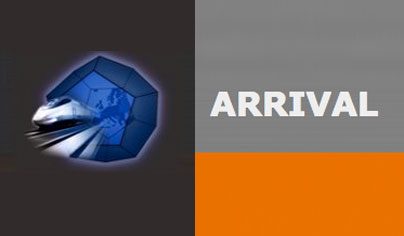ARRIVAL
Algorithms for Robust and online Railway optimization: Improving the Validity and reliAbility of Large scale systems
Algorithmic methods have reached a state of maturity as a consequence of decades of research where real-world problems were posed to the algorithms’ community triggering important developments in the field. Despite this success, the current state of algorithmic research still faces severe difficulties, or cannot cope at all, with highly complex and data-intensive applications as those dealing with optimization issues in large-scale communication and transportation networks.
In this project, the aim was to establish such a new paradigm and considerably advance the current state of algorithmic research by attacking optimization questions in perhaps the most complex and largest in scale (transportation) setting: that of railway systems. Railway optimization deals with planning and scheduling problems over several time horizons.
Something to Know about ARRIVAL
CALL
FP6 – IST – Future Emerging Technologies
DURATION
02/2006 – 07/2009
OBJECTIVES
The project main goal was to develop the necessary foundational algorithmic research in order to provide ingenious and sound answers to the fundamental efficiency and quality issues encapsulated in robust and online planning of complex, large-scale systems as those in railways.
We developed an understanding of the fundamental issues that make robust and online railway optimization problems hard and to subsequently develop new algorithmic and complexity principles to deal with hardness through an integrated, interdisciplinary approach drawn from algorithmic, operations research, and constraint programming techniques.


The contents of this publication are the sole responsibility of ICOOR and do not necessarily reflect the opinion of the European Union.
